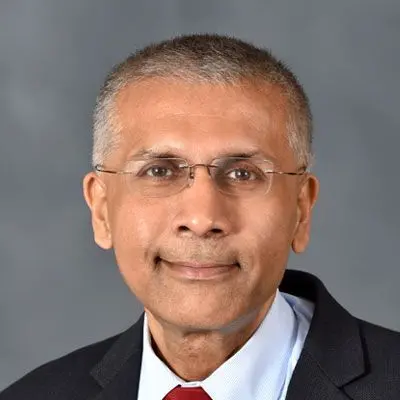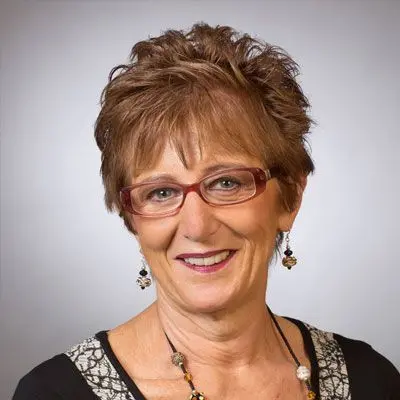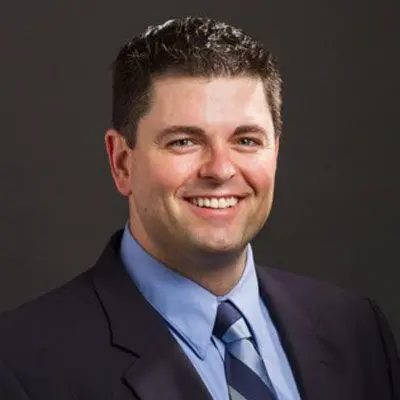Disclaimer
The alfapump® system is currently not approved in Canada for commercial use. DSR® therapy is still in development and is currently not approved in the United States or Canada. Any statements regarding safety and efficacy arise from ongoing pre-clinical and clinical investigations which have yet to be completed. Sequana Medical makes no claims of safety or effectiveness of the DSR® therapy in the U.S. or Canada. There is no link between the DSR® therapy and ongoing investigations with the alfapump® system in Europe, the United States or Canada.
An investigational disease-modifying heart failure drug therapy tackling cardiorenal syndrome
Direct Sodium Removal or DSR has the potential to break the negative feedback cycle of cardiorenal syndrome, through effective control of the volume status for an extended period of time and thereby avoiding the negative consequences of loop diuretics.
DSR® therapy is still in development and is currently not approved in the United States or Canada. Any statements regarding safety and efficacy arise from ongoing pre-clinical and clinical investigations which have yet to be completed. Sequana Medical makes no claims of safety or effectiveness of the DSR® therapy in the U.S. or Canada.
There is no link between the DSR® therapy and ongoing investigations with the alfapump® system in Europe, the United States or Canada.
The sodium concentration in patients with fluid overload is in balance but there is too much sodium and too much fluid in the body.

Our approach is to remove excess sodium in patients with residual renal function.

As a result, the body acts to restore the sodium concentration in the body by eliminating fluid through urination and osmotic ultrafiltration, resulting in a sustained level of fluid loss.

DSR® therapy involves the use of the peritoneal cavity for the removal of sodium via diffusion. To do this, a “sodium-free” solution known as “DSR® product” is administered into the abdomen and allowed to dwell for a pre-defined period.
During this time, sodium diffuses from the body down a steep diffusion gradient into the DSR® product. Circulation keeps the effective blood sodium concentration high. The DSR® product and the extracted sodium are then removed, resulting in a removal of sodium from the body. The body responds by eliminating the associated fluid via osmotic ultrafiltration (the movement of water, together with sodium, from the bloodstream to the peritoneal cavity) and/or urination.
The impact of administering a sodium-free DSR® product into the peritoneal cavity, and the resulting sodium and fluid removal, was evaluated in pre-clinical and clinical proof-of-concept studies using single and repeated dose DSR® therapy.
Proof-of-concept data from a pre-clinical and first-in-human single dose DSR® study have been published in the high impact clinical journal Circulation.
Positive top-line data from RED DESERT, a repeated dose DSR® study in 8 euvolemic heart failure patients on high dose diuretics, were reported in the press release and webcast on 11 May 2021. Results were selected for the Late Breaking Science Results at the Heart Failure 2021 Online Congress.
Positive top-line data from SAHARA, a repeated dose DSR® study in decompensated diuretic-resistant heart failure patients, were reported in the press release on 15 November 2022.
Data from the RED DESERT and SAHARA studies have been published in the prestigious peer-reviewed journal European Journal of Heart Failure.
MOJAVE STUDY
This is a randomized controlled Phase 1/2a study in the US, that will evaluate the safety and efficacy of DSR 2.0 in diuretic-resistant chronic heart failure patients with persistent congestion.
The study commences with a non-randomized cohort of three eligible patients treated with DSR 2.0, administered via a peritoneal dialysis (PD) catheter, on top of optimized usual care for congestive heart failure for up to four weeks followed by a three-month safety follow-up period. Progress to the multi-center randomized cohort of up to 30 additional patients depends on approval from the Data and Safety Monitoring Board (DSMB) following review of the non-randomized cohort data.
The randomized cohort will consist of up to 20 randomized patients treated with DSR 2.0, administered via a PD catheter, on top of optimized usual care for congestive heart failure for up to four weeks and up to ten randomized patients treated with intravenous loop diuretics alone as part of maximized usual care for congestive heart failure. Following four weeks of treatment, there is a three-month safety follow-up period.
Primary and secondary safety and efficacy endpoints include the rate of adverse and serious adverse events and the improvement in diuretic response (measured as a six-hour urine sodium output) from baseline through the end of the treatment period. Exploratory endpoints measured from baseline through the end of the treatment period include change in weight (volume status), creatinine (a marker of renal function), natriuretic peptides (a marker of heart failure) and New York Heart Association (NYHA) functional class; and the number of heart failure related rehospitalizations.
Results from non-randomized MOJAVE Cohort: Press release on 29 November 2023
SAHARA – REPEATED DOSE DSR STUDY IN DECOMPENSATED HEART FAILURE PATIENTS
SAHARA is a multi-centre, prospective, randomised, open-label study to evaluate the safety and feasibility of DSR therapy in heart failure patients with persistent congestion and resistance to loop diuretic treatment. Patients will undergo a diuretic challenge to quantify their response to diuretics, which will be repeated at specific time points throughout the study. At the start of the study treatment period, loop diuretics will be withheld and patients will be randomised 1:1 to DSR therapy with or without SGLT2-inhibitor to evaluate their impact on DSR therapy. Patients will undergo intensive DSR therapy with DSR D10% infusate for two weeks (phase 1) which can be repeated up to two times depending on their euvolemic state, diuretic response and stable DSR dosing at the end of phase 1. Patients who have achieved euvolemia and have adequate diuretic response will enter into the maintenance DSR treatment phase with monthly DSR dosing for 16 weeks (phase 2).
The primary safety and tolerability endpoints include the rate of treatment-, device- or procedure-related serious adverse events through the end of the maintenance phase. Secondary feasibility endpoints include the ability of DSR therapy to restore and maintain euvolemia without the need for additional loop diuretic treatment. Additional exploratory endpoints will evaluate the potential impact of SGLT-2 inhibitors on DSR therapy. The study is being conducted in up to three clinical centres in the Republic of Georgia. For more information about the study, please visit clinicaltrials.gov (NCT04882358).
RED DESERT – REPEATED DOSE DSR STUDY IN HEART FAILURE PATIENTS ON HIGH DOSE DIURETICS
Prospective, single-arm, first-in-human repeated dose study to evaluate the safety and feasibility of DSR in diuretic-resistant heart failure patients. Results demonstrated that repeated DSR therapy could effectively replace patients’ high dose loop diuretics and restore their diuretic response and overall cardio-renal status. These strong results were presented at the Heart Failure 2021 Digital Congress as part of the Late Breaking Science Results and selected for the congress’ Highlights session.
DSR® CLINICAL PROOF OF CONCEPT STUDY
First-in-human single dose DSR® proof of concept study to assess safety, tolerability and impact of direct sodium removal therapy in 10 patients receiving peritoneal dialysis (PD). Results selected for late-breaking abstract session at Heart Failure 2019.
DSR® PRECLINICAL PROOF OF CONCEPT STUDY
Single dose, single arm preclinical proof of concept study to assess impact of direct sodium removal therapy in 15 healthy pigs and 5 pigs with experimentally induced heart failure via tamponade.

Dr. Butler is the Patrick H. Lehan Chair in Cardiovascular Research, and Professor and Chairman of the Department of Medicine at the University of Mississippi Medical Center. Dr. Butler’s research focuses on clinical trials in patients with heart failure. He serves on several national committees including: the American College of Cardiology, American Heart Association, National Institutes of Health, and the Heart Failure Society of America. He is a recipient of the Simon Dack Award by the American College of Cardiology as well as the Time, Feeling, and Focus Award by the American Heart Association. Dr. Butler has authored more than 550 peer-reviewed publications. He serves on the editorial board of several peer-reviewed cardiovascular journals and has been cited in America’s Best Doctors list.

Dr. Costanzo is the Medical Director of the Edward Center for Advanced Heart Failure and Medical Director, Heart Failure Research for the Advocate Heart Institute. She is a Fellow of the American College of Cardiology, American Heart Association and European Society of Cardiology. Dr. Costanzo is also a member of the Ordine Dei Medici (The Italian National Medical Professional Association) and a member of the Board of Directors of the Heart Failure Society of America. Dr. Costanzo has led several multi-centre randomised clinical trials, has written more than 200 papers, abstracts and articles and has presented nationally and internationally on numerous topics related to heart failure and cardiac transplantation.

G. Michael Felker, MD, MHS, FACC, FAHA, FHFSA is Professor of Medicine with tenure in the Division of Cardiology at Duke University School of Medicine. He is Director of Cardiovascular Research at the Duke Clinical Research Institute and Vice-Chief for Clinical Research in the Division of Cardiology. Dr. Felker’s research focus is on clinical trials in acute and chronic heart failure and the use of biomarkers as diagnostics, prognostic, and therapeutic tools in heart failure. He has published over 320 peer reviewed articles and book chapters in the field of heart failure and has served on the executive and steering committees for multiple national and international clinical trials in heart failure. Previously, he was Chief of the Heart Failure Section at Duke University School of Medicine from 2013 to 2020.

Dr. Tang is Professor of Medicine at Cleveland Clinic Lerner College of Medicine at Case Western Reserve University. Dr. Tang is a practicing heart failure/transplant cardiologist specialising in specific cardiomyopathies, cardio-renal diseases, and cancer-related heart diseases. Dr. Tang is credited for unravelling the contemporary physiologic and molecular understanding of a subset of patients with cardio-renal syndrome, including the recognition of venous congestion, intra-abdominal pressure, and metabolic dysregulation as key determinants. Dr. Tang’s NIH-funded translational research focuses on understanding the mechanisms through which nitrative stress and epigenetics contribute to disease progression in heart failure and cardiomyopathy in humans, with the goal of identifying preventive treatment strategies for heart failure. Dr. Tang has authored over 630 peer-reviewed scientific manuscripts, editorials, and book chapters, which include the latest national heart failure guidelines.

Dr. Testani is Associate Professor of Medicine and Director of Heart Failure Research at Yale University School of Medicine. Dr. Testani’s primary research interest is the mechanistic understanding of cardiac-renal interactions, fluid and sodium homeostasis, and diuretic resistance in heart failure. He has over 100 peer reviewed publications with the key focus of this work understanding cardio-renal interactions in heart failure. His laboratory utilises techniques of translational research using prospective human clinical trials and large animal models to better understand mechanism and develop new therapies and diagnostics. His lab is funded by the National Institutes of Health and industry sources totaling over $15 million, and is considered by many to be amongst the top laboratories in the world in this field of study.

James E. Udelson, MD is Chief of the Division of Cardiology at Tufts Medical Center and Professor of Medicine and Radiology at Tufts University School of Medicine. Dr. Udelson’s research interests involve studying the effects of new therapeutic modalities in the setting of heart failure as well as acute and chronic coronary artery disease, and the development of imaging modalities to assess those effects. Dr. Udelson has directed and/or participated in numerous clinical trials on heart failure and cardiac imaging, focusing on the role of new therapies and how they affect remodeling, physiology, function, and outcomes. Dr. Udelson has served as a member of the FDA Medical Imaging Drugs Advisory Panel and has been invited as an ad hoc member of the FDA’s Cardiovascular and Renal Drugs Advisory Panel and the Peripheral and Central Nervous System Advisory Panel
(*) All physician advisors have been compensated by Sequana for their participation.